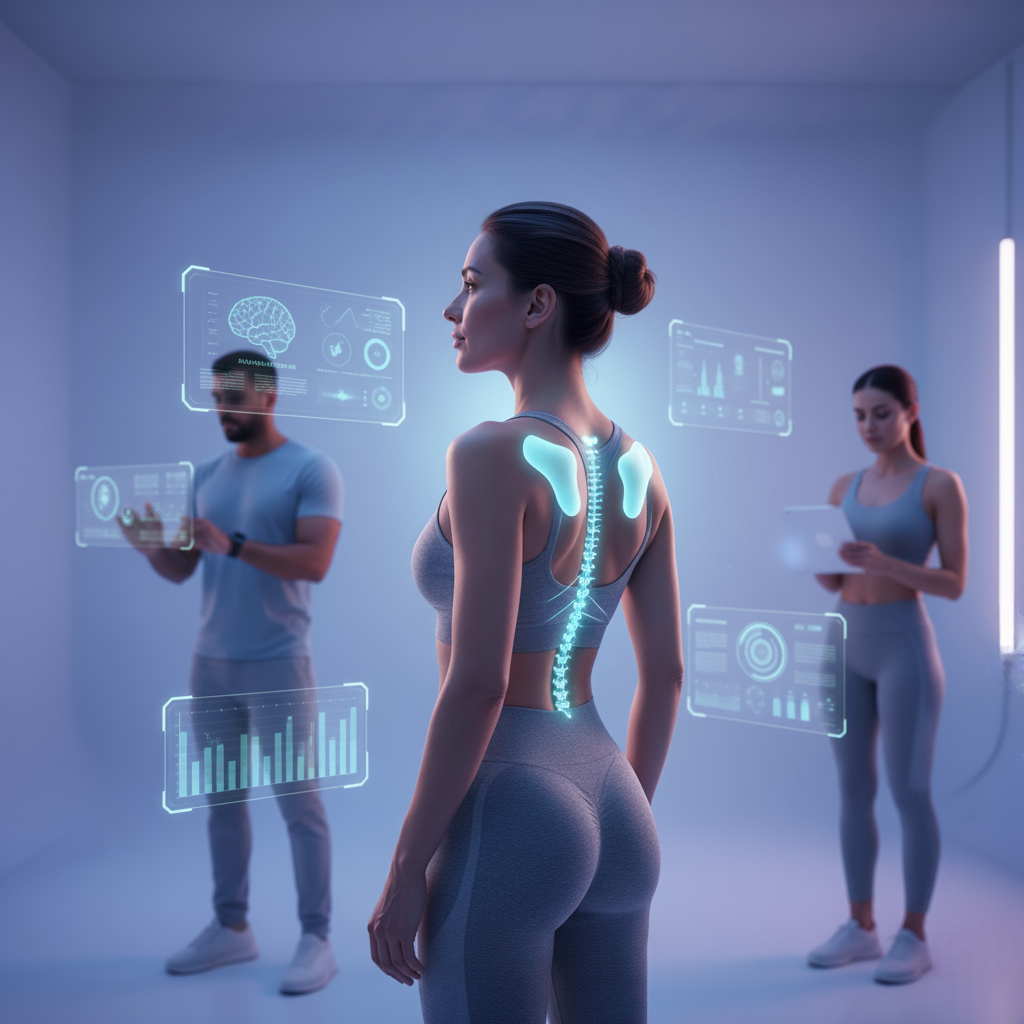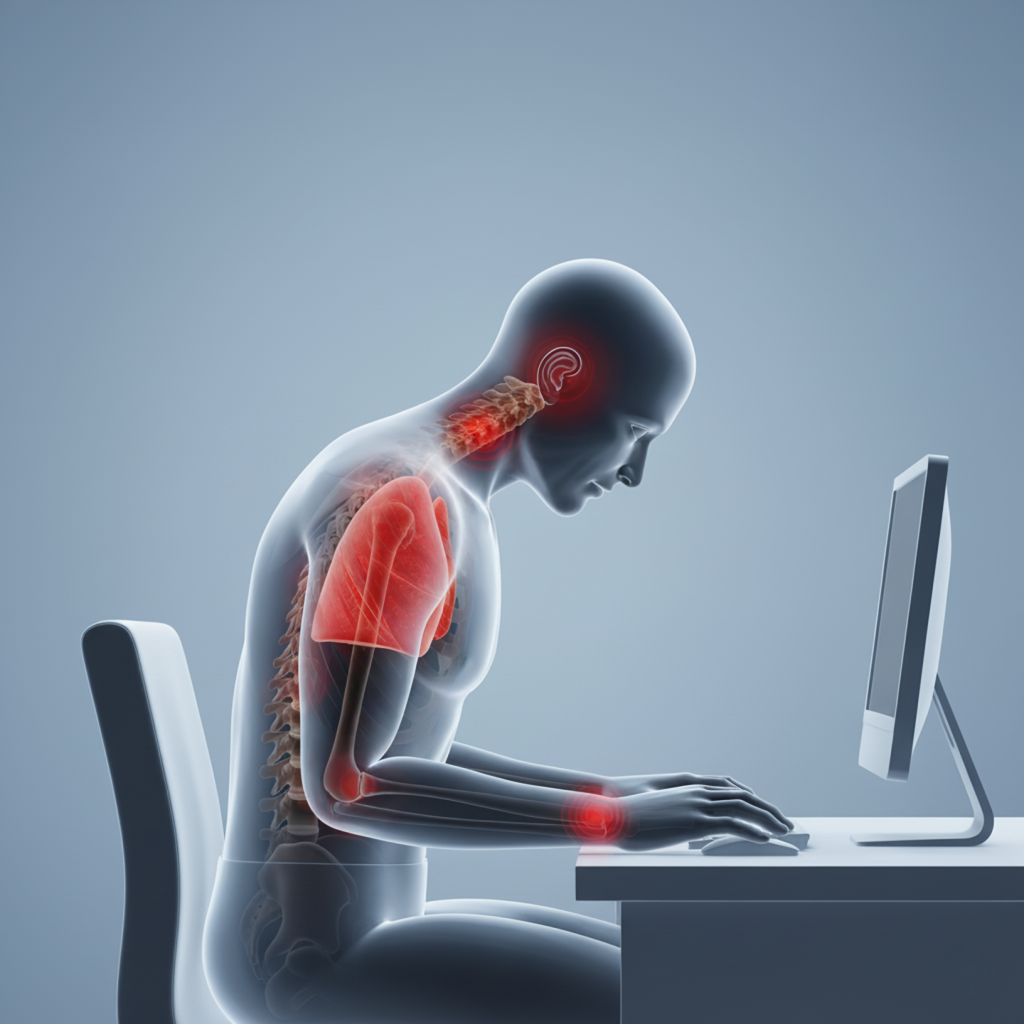In today’s world, social media addiction has taken center stage — from communication to entertainment.
However, this constant digital engagement subtly reshapes our body language, posture, and even our mental state.
Hours spent leaning toward the phone, slumping shoulders, and tilting the neck forward can gradually lead to posture disorders and chronic postural misalignment.
In modern society, poor posture has become an invisible epidemic — one that causes not only physical discomfort but also mental fatigue.
What Does Science Say?
Recent academic research has found a strong link between smartphone addiction and posture disorders:
-
Oliveira Fontenele TM et al. (2023) reported that young individuals with higher levels of smartphone addiction show significant cervical posture deviations.
“Academic studies reveal a clear correlation between high smartphone usage and postural alterations in the neck region.”
-
Meng et al. (2025) conducted a meta-analysis showing that spending more than 4–6 hours daily in sedentary screen-based activities significantly increases the risk of neck pain.
“The longer the sitting time, the higher the risk of neck pain.”
-
Devi KA et al. (2023) emphasized that excessive screen time negatively impacts not only the musculoskeletal system but also mental health.
“Prolonged screen exposure leads to both physical and mental fatigue.”

The Hidden Connection Between Posture and Awareness
Upright posture is not just a physical stance; it’s closely related to confidence, focus, and mental balance.
Research shows that maintaining a good posture activates positive thought patterns in the brain, while slouched posture increases the release of stress hormones.
Therefore, social media addiction and the habit of constantly leaning toward the screen create not only physical strain but also psychological fatigue.

Fixing Posture with Technology: Kodgem Straight and AI-Powered Posture Devices
Ironically, technology — the root of the problem — can also be part of the solution.
Kodgem Straight, one of the leading AI-powered posture devices, is a posture tracker that uses intelligent vibration feedback to remind you to sit or stand upright.
It detects the angle of your shoulders and gently alerts you when you begin to slouch, helping you regain a healthy posture position.
This innovative device represents an AI health tech solution that personalizes the posture correction process based on your daily habits.
“Wearable posture devices can enhance awareness by providing real-time feedback.”(Figueira V. et al., 2024)
AI-powered posture devices help users develop postural awareness, protect spinal health, and minimize the negative physical impact of extended digital screen time.
When used mindfully, technology becomes a powerful ally in supporting posture health.
👉 Click here for more information about Kodgem Straight.
Conclusion: The Digital Reflection of Posture
In the age of social media, standing tall is no longer just a physical action — it’s a state of awareness.
A few minutes of mindful stretching, conscious screen use, and posture correction technologies can help shape a healthier, more balanced society.
Solutions like Kodgem Straight and other AI health tech innovations not only assist in combating digital addiction but also promote body–mind awareness.
It’s time to lift our heads — not to look at our screens, but to look up and live fully.
References
- Oliveira Fontenele TM, et al. (2023). Smartphone addiction and postural alterations in the cervical region. PMC / NCBI
- Meng Q., et al. (2025). The associations between sedentary behavior and neck pain: a systematic review and meta-analysis. BMC Public Health
- Devi KA., et al. (2023). The hazards of excessive screen time: Impacts on physical health. PMC
- Figueira V., et al. (2024). Wearables for Monitoring and Postural Feedback. PMC




Yorum yazın
Bu site hCaptcha ile korunuyor. Ayrıca bu site için hCaptcha Gizlilik Politikası ve Hizmet Şartları geçerlidir.